Julie Cooper | April 12, 2022
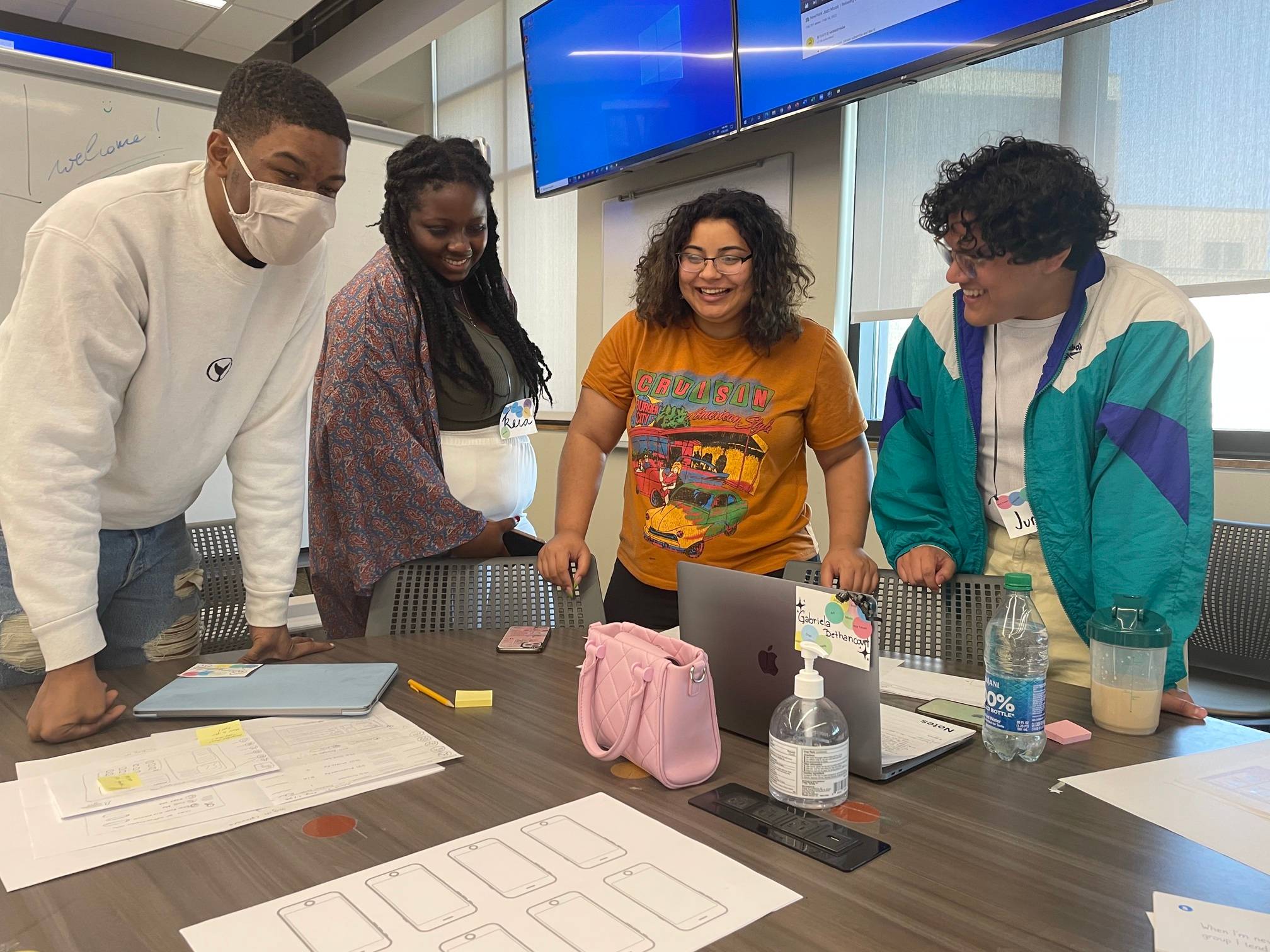
Texas State University and NEC Corporation of America partnered to host a student competition to generate new ways to use technology, research and data to fight human trafficking. Student teams used real-world data to identify human trafficking threats and create a user-interface that law enforcement can use to share information and build an archive of sex trafficking activities.
The eight-hour “Stop Human Trafficking” event was held March 26 in Ingram Hall with 15 students divided into four teams. Students were asked to develop a password-protected database for law enforcement. This would include a registry of phrases, emojis, and other online advertisement characteristics that may be “red flags” for sexual exploitation – everything from phrases like "new in town" and "brand new,” to a photo of the same woman in various cities.
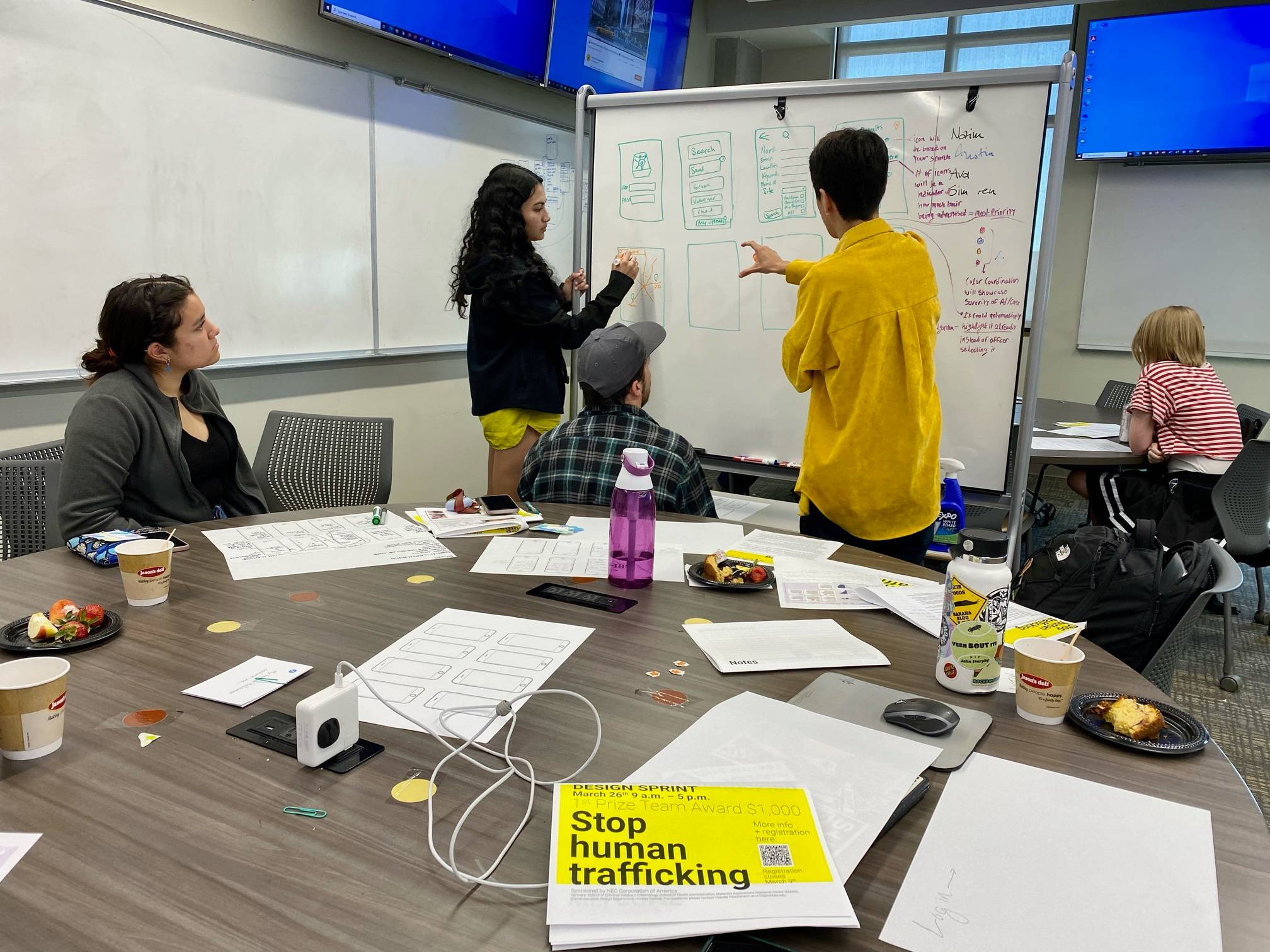
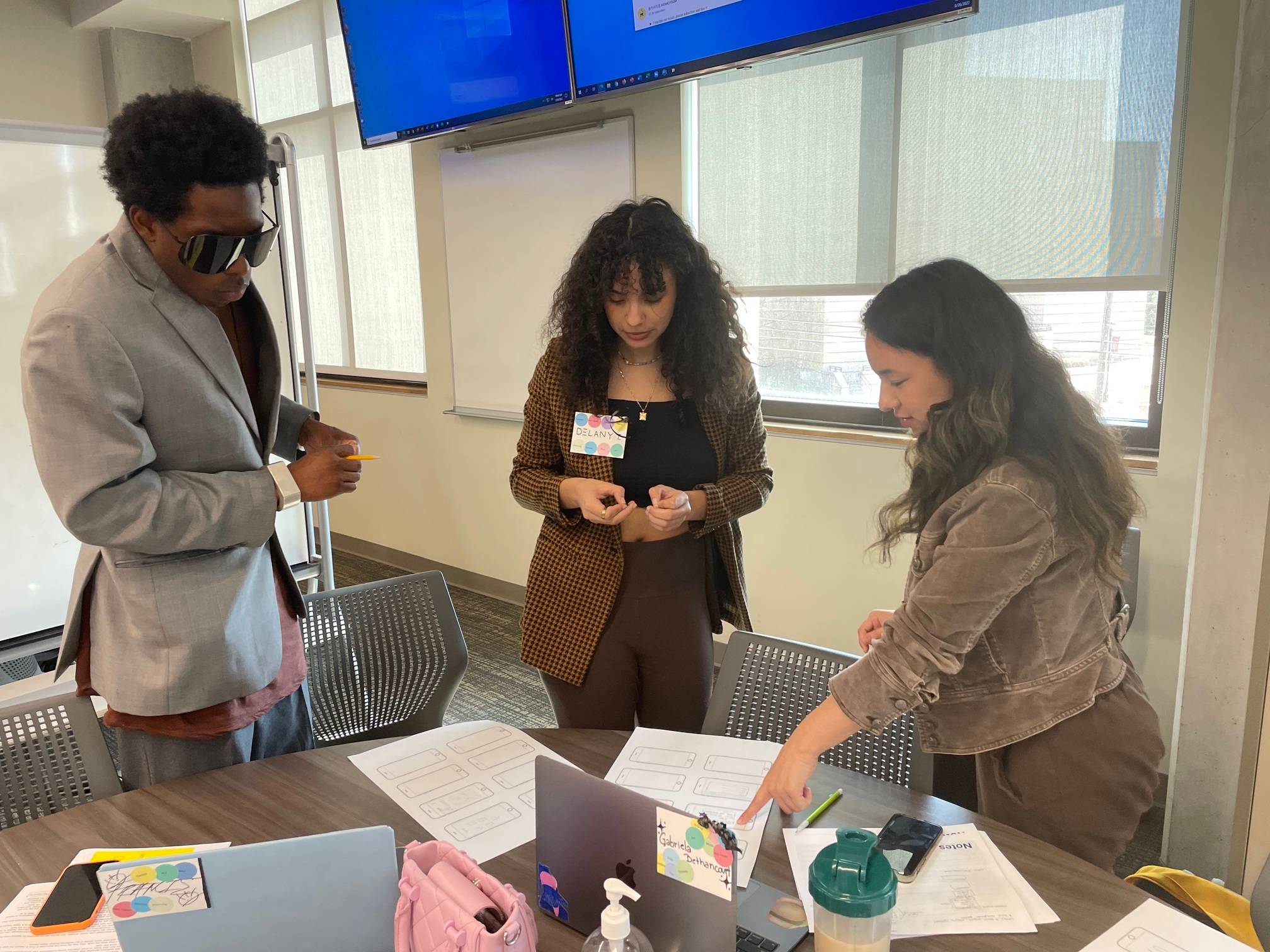
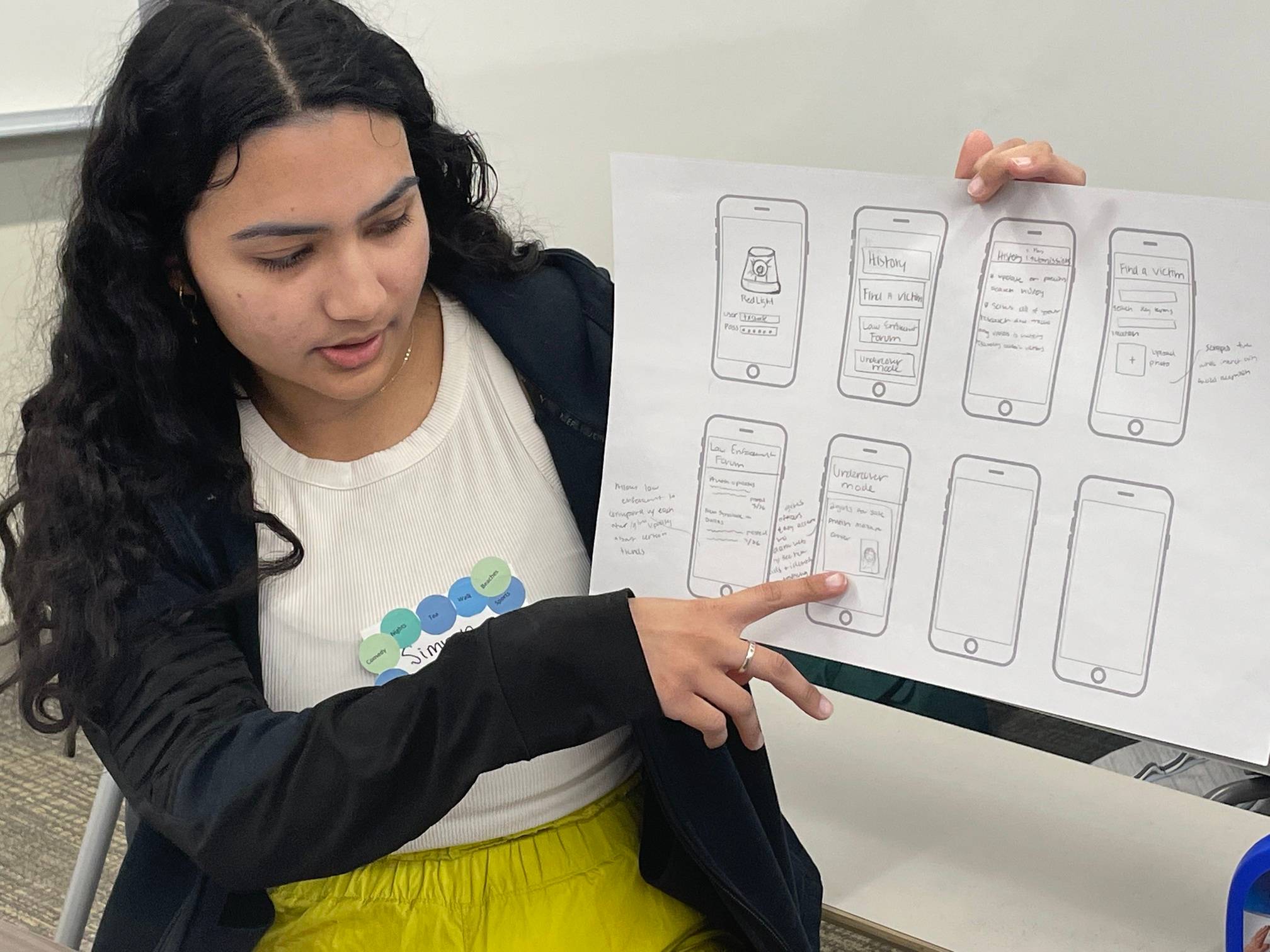
The student competitors represented 10 university disciplines including biology, biochemistry, civil engineering, computer science, communication design, digital media innovation, criminal justice, electronic media, psychology, and Spanish.
Judges were looking for a low-fidelity prototype with intuitive navigation, easy-to-find information, good map and keyword integration, great functionality, and an overall good digital experience. With this online tool, a user could enter a geographic area they were interested in, and the tool would ‘auto-scrape’ local escort/massage ads, apply an algorithm used to identify those ads likely to be associated with sex trafficking activity, and return the top (highest-risk) ads.
The winning team included: Naim Carbajal, communication design; Austin Farar, communication design; Ava Puente, biochemistry and Spanish; and Simren Pokhrel, civil engineering. The runner-up team consisted of Alyssa Scott, communication design; Kelsey Emeris Burdick, electronic media; Andrew Magill, computer science; and Deyn Lucas, digital media innovation. The top two teams shared $2,000 in prize money provided by NEC.
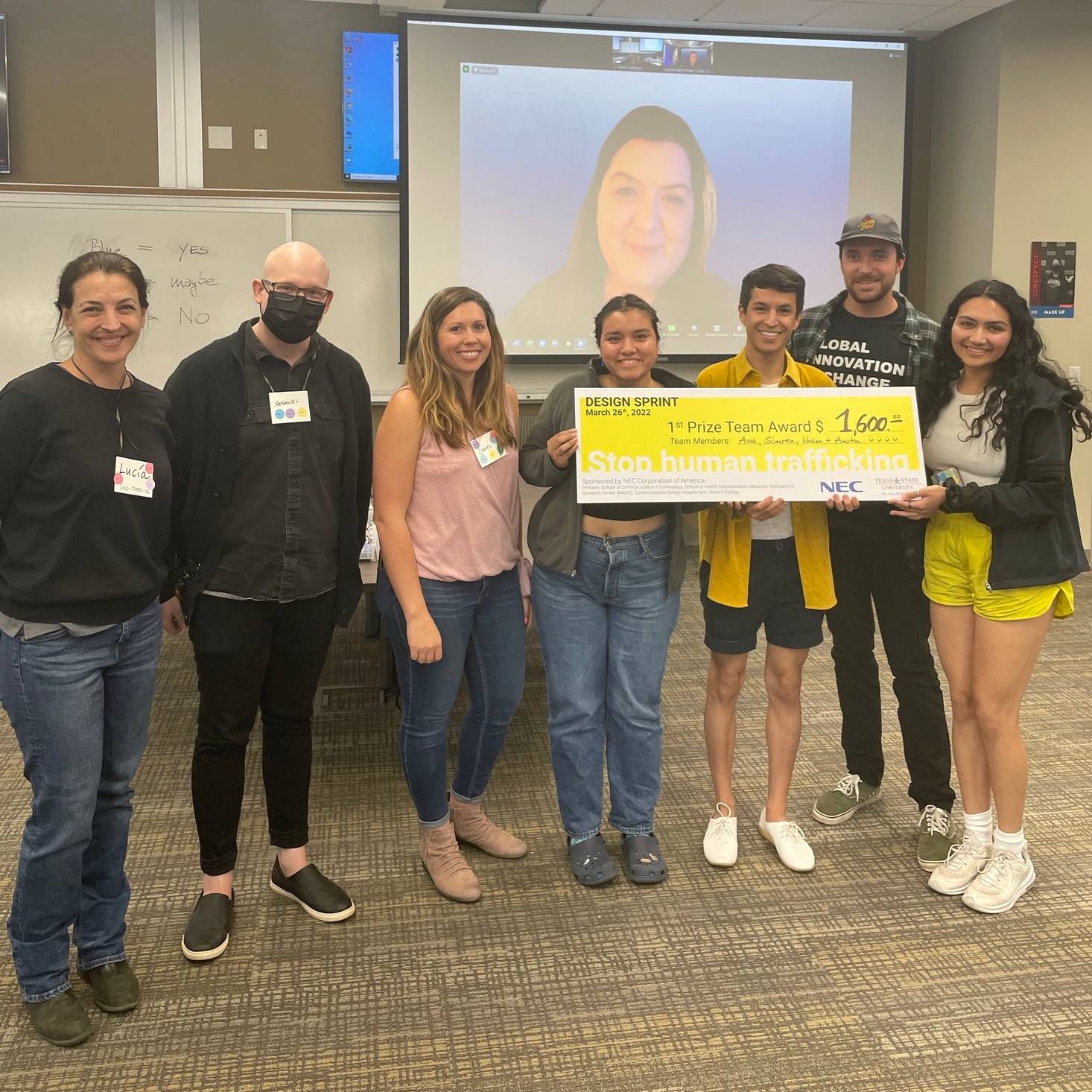
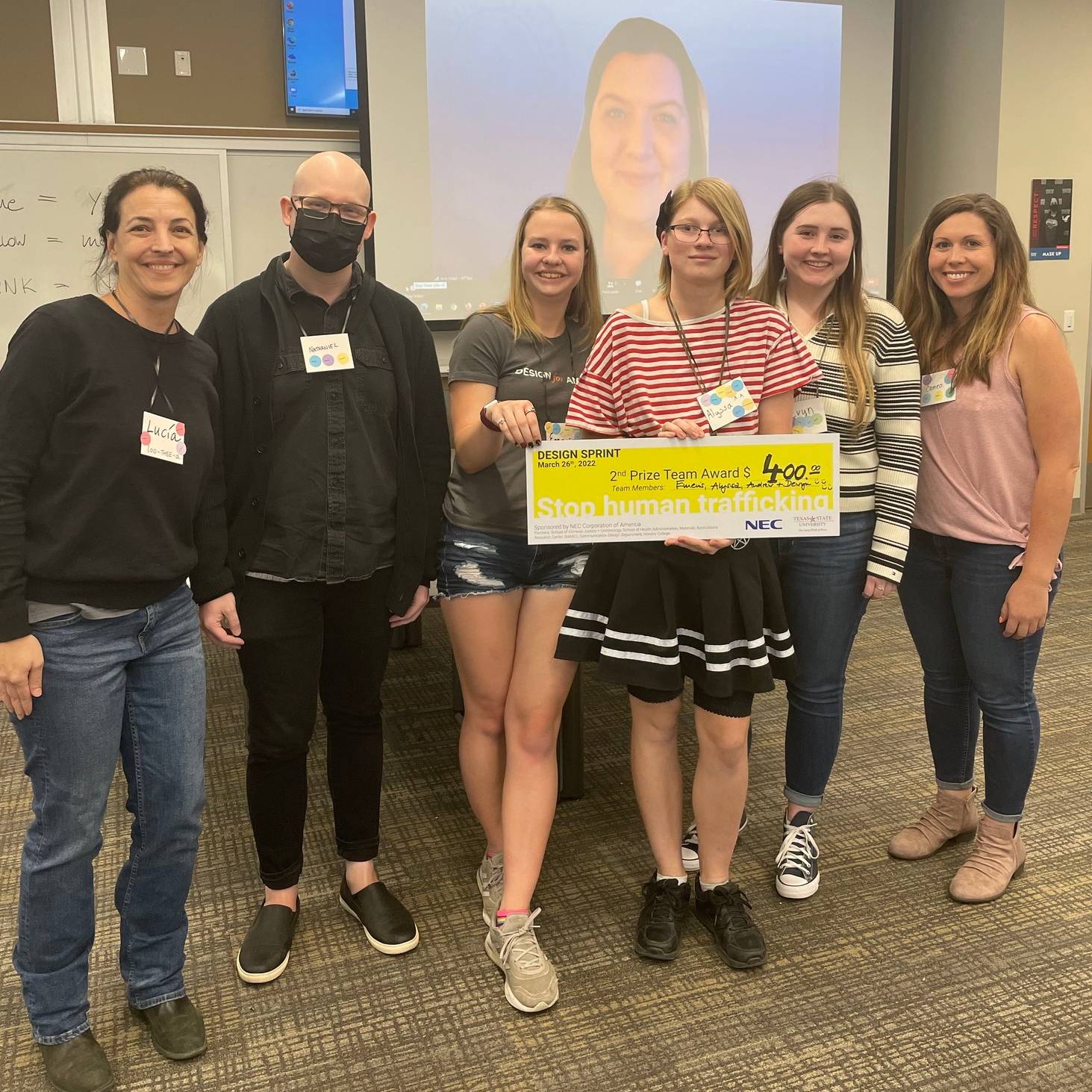
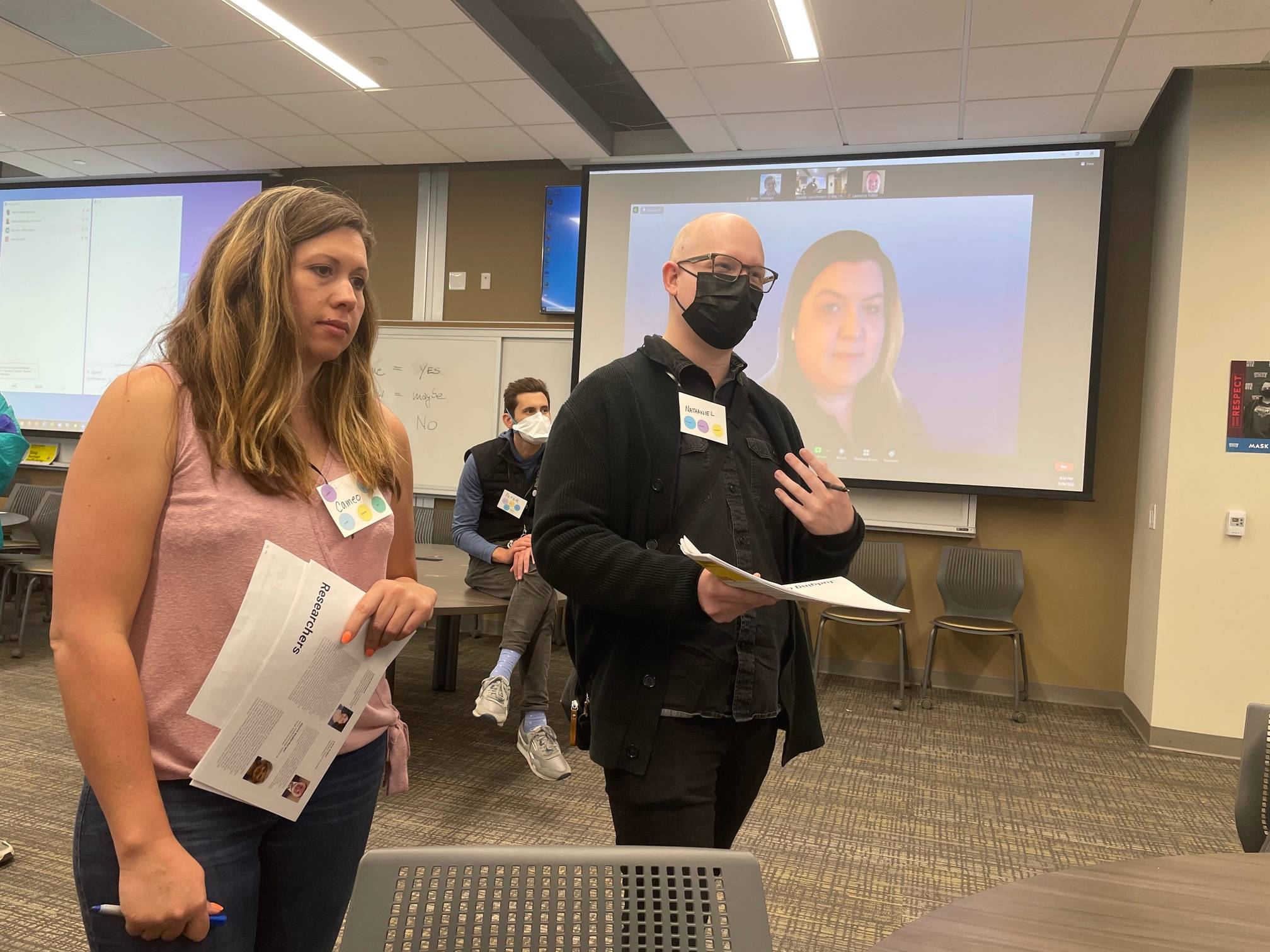
Texas State researchers taking part on the design sprint included: Dr. Lucia Summers, Associate professor in the School of Criminal Justice and Criminology; Claudia Röschmann, professor in the School of Art and Design; Dr. Larry Fulton, professor in the School of Health Administration; Dr. Peter Tschirhart, associate dean in the Honors College; and Alyssa Shallenberger, a doctoral student in the School of Criminal Justice and Criminology.
Contest judges were Jessica Mast, program specialist from the Trafficking and Transnational/Organized Crime Division in the Texas Office of the Attorney General; Nathaniel Haefner (B.F.A. ’20), a design and photography teacher at Austin ISD; and Cameo Chattin (B.F.A. ’06), a senior UX designer at the Home Depot.
NEC, an information and communications technology leader, is supporting technology and organizations that could lead to the development of new anti-trafficking solutions.
TXST / NEC PARTNERSHIP
Texas State and NEC have a longstanding partnership, collaborating on numerous research projects since 2014. President Denise M. Trauth met with NEC leaders on the San Marcos Campus in March to discuss the latest research collaborations.
“Together, Texas State and NEC have worked to bring technology to bear on some of the most critical challenges faced by society,” said President Trauth. “NEC has strengthened Texas State research in a myriad of areas, including in our Ingram School of Engineering and Department of Geography. Together, we’ve studied labor-intensive manufacturing processes, data transmission, and water conservation. NEC America also funded our data analysis of the effectiveness of NEC’s remote in-vehicle passenger detection system, and many other initiatives.”
ABOUT HUMAN TRAFFICKING
The National Human Trafficking Hotline describes human trafficking as a form of modern slavery that occurs in every state, including Texas. It includes sex trafficking and labor trafficking. “Human trafficking is the business of stealing freedom for profit. In some cases, traffickers trick, defraud or physically force victims into providing commercial sex. In others, victims are lied to, assaulted, threatened or manipulated into working under inhumane, illegal or otherwise unacceptable conditions. It is a multi-billion-dollar criminal industry that denies freedom to 24.9 million people around the world.”
Share this article
For more information, contact University Communications:Jayme Blaschke, 512-245-2555 Sandy Pantlik, 512-245-2922 |
